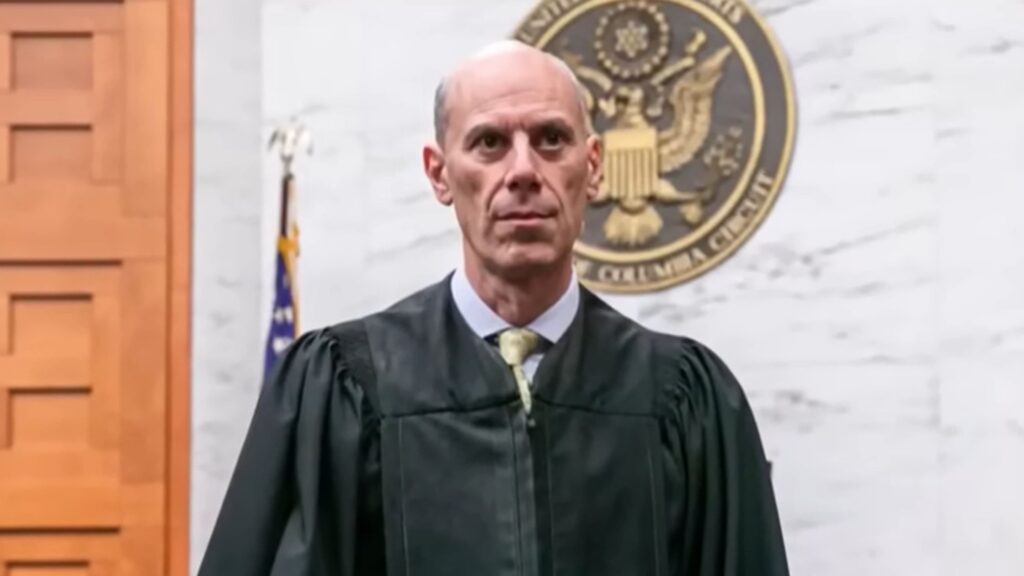Few people have attracted as much attention in the convoluted field of U.S. immigration law as distinguished federal judge Judge James “Jeb” Boasberg, known for his divisive opinions on deportation tactics. But in more recent years, the focus has turned to his daughter, Katharine Boasberg, a legal champion whose work defending immigrants sparks discussion. Katharine’s career has spurred conversations on the possible junction between judicial impartiality and personal involvement as her father oversees important cases challenging the Trump administration’s immigration policies.
Particularly in halting deportation flights, Judge Boasberg is well-known for his audacious decisions that directly affect Trump administration plans. But his daughter’s career path—arguing for immigrants and shielding them from deportation—has produced an unquestionably personal link to the situations her father handles. The growing focus on Katharine Boasberg has begged issues regarding the moral limits between the decisions of a judge and the advocacy of their family members, thereby starting an important and required dialogue.
Since public personalities have expressed worries about possible conflicts of interest recently, this problem has became even more noticeable. Critics contend that Katharine’s job, which closely reflects the needs of the immigrant population, can skew her father’s decisions. Supporters counter that Katharine’s relentless effort to defend weaker people and her commitment to social justice mirror the great values she and her father cherish. Beyond the headlines and disputes, though, a more general and significant narrative about family, values, and the fight for justice is being development.
ALSO READ – What Stray Kids’ “Truman” Teaches Us About Overcoming Self-Doubt
Bio Data of Judge James “Jeb” Boasberg and Katharine Boasberg
| Attribute | Judge James “Jeb” Boasberg | Katharine Boasberg |
|---|---|---|
| Full Name | James Boasberg | Katharine Boasberg |
| Occupation | U.S. Federal Judge | Legal Advocate at Partners for Justice |
| Education | Yale University, J.D. | Harvard Law School, J.D. |
| Notable Cases | Blocked deportation flights under wartime law | Advocacy for immigrant rights, including deportation defense |
| Professional Affiliations | U.S. District Court for the District of Columbia | Partners for Justice |
| Family Role | Chief Judge, U.S. District Court | Legal Advisor for migrants and criminal defense |
| LinkedIn/Profile | Judge Boasberg Profile | Katharine Boasberg Profile |
Katharine Boasberg’s Legal Advocacy: A Commitment to Justice
Over her career, Katharine Boasberg has battled for immigrant rights and against deportation. Working with Partners for Justice, a group that offers underprivileged populations basic legal assistance, Katharine’s work reveals a great dedication to upholding the rights of people most in need. Her emphasis is not only on shielding people from deportation but also on implementing institutional change addressing the more general problems with immigration laws.
Amazingly flexible in her approach, Katharine’s legal profession reflects her conviction that law has great ability to bring about constructive social change. Her advocacy of deportation defense is especially helpful in a situation when immigrant legal representation is sometimes insufficient or nonexistent. Offering migrants a much-needed lifeline in a sometimes unfriendly legal environment, Katharine’s work has especially helped them negotiate the complexity of U.S. immigration rules.
By combining her love of justice with a strong background in legal knowledge, Katharine keeps advancing in safeguarding some of the most disadvantaged sections of society. Despite the increased attention her family’s high profile generates, her emphasis on criminal defense and activism has won her recognition in the legal community.
Family, Law, and the Public Eye: A Delicate Balance
The public’s response to Judge Boasberg and his daughter reflects the more general discussion on the place of personal convictions and professional honesty in the court. With every high-profile case Judge Boasberg supervises—including those directly affecting immigration policies—the professional associations of his daughter become ever more important. And as Katharine keeps advocating for immigrants, it becomes more evident whether her work could affect the decisions made by her father.
Still, this increasing scrutiny shouldn’t eclipse the actual influence Katharine’s efforts have produced. Her work is motivated by a want to assist people most likely to be overlooked by the system, not by political goals. For Katharine, her job is one of justice and compassion—values closely related with the standards her father follows in his courtroom. The Boasbergs are highly regarded in legal circles in part because of their mutual dedication to justice.
In the framework of the polarized political environment of today, when legal personalities are under constant scrutiny for their alleged prejudices, it is crucial to see the whole picture. Notwithstanding all the pressure on them, Judge Boasberg and his daughter are dedicated to following the law. Their integrity under difficult circumstances emphasizes the need of justice and objectivity in the legal field.
The Future of Legal Advocacy: A Shared Legacy of Justice
Looking ahead, it is abundantly evident that the legacy of the Boasberg family in the legal field is continually developing. While her father’s decisions will surely change immigration law in the United States, Katharine’s work with immigrants continues to inspire and influence innumerable lives. As legal challenges on immigrant rights and deportation continue to change in the next years, the Boasbergs’ contributions will always be significant in the dialogue.
Those observing the change in the legal scene should pay close attention to how the Boasbergs have negotiated these choppy seas with relentless commitment to justice. Whether it’s Judge Boasberg rendering historic rulings in the courtroom or Katharine pushing for structural change, their combined efforts emphasize the law’s continuing ability to defend people most in need.
The Boasbergs are evidence of the continuing power of the law when directed by integrity, compassion, and an unflinching dedication to justice in a society where family ties sometimes cast questions on objectivity. Their narrative, full of both personal and professional victories, nevertheless inspires optimism for a time when justice rules all else.

